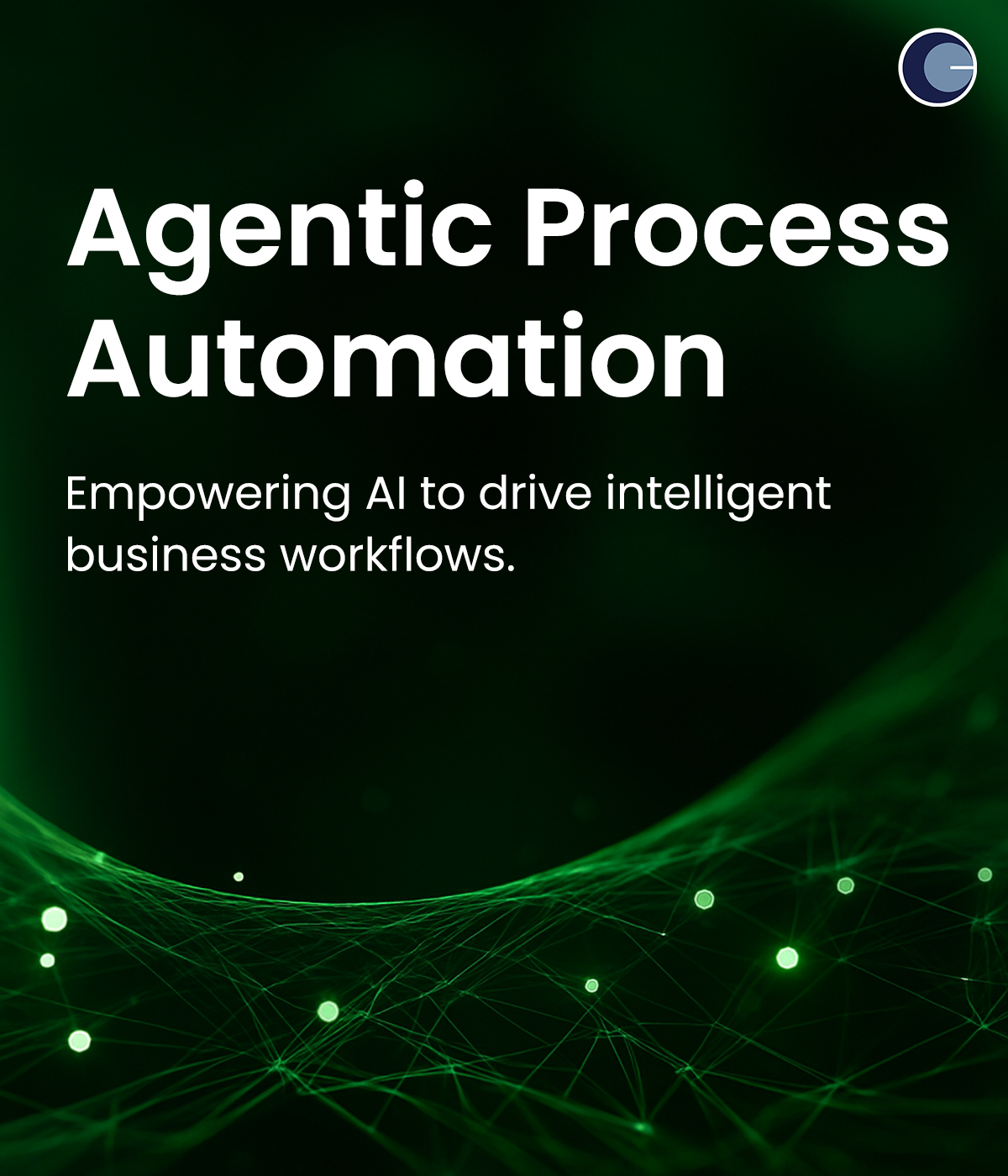In today’s high-speed business environment, efficiency and adaptability are more than competitive advantages—they’re survival requirements. Organizations are under constant pressure to deliver faster, more accurate, and more personalized services while reducing costs.
Agentic Process Automation (APA) is emerging as the next major leap in intelligent automation. Unlike traditional automation, which executes pre-defined scripts, APA uses AI-powered agents capable of making decisions, adapting to changing conditions, and optimizing workflows in real time.
As an enterprise AI solutions provider, Charter Global partners with organizations to design, implement, and scale APA solutions using flexible open-source frameworks.
Our approach ensures not only operational efficiency but also scalability and resilience across industries such as finance, healthcare, manufacturing, and retail.
Understanding Agentic Process Automation
While Robotic Process Automation (RPA) has helped businesses reduce manual workloads, it operates on fixed, rule-based logic. Agentic Process Automation takes this a step further by incorporating decision-making, self-learning, and adaptability.
Key elements of APA include:
- Autonomous AI agents – Execute tasks, make decisions, and improve performance through machine learning.
- Seamless integration – Works with existing enterprise systems, including ERP, CRM, and supply chain platforms.
- Dynamic workflow optimization – Adjusts in real time based on incoming data, system feedback, and business priorities.
Think of APA as having a team of digital co-workers who not only follow instructions but also anticipate issues, adapt to challenges, and continuously learn to do their jobs better.
Benefits of Agentic Process Automation
Adopting APA can create transformative benefits for enterprises:
- Lower operational costs – By minimizing manual intervention and reducing error rates.
- Faster, more efficient workflows – APA can process large volumes of tasks in a fraction of the time compared to human teams.
- Stronger compliance and governance – Every decision and action is logged, ensuring traceability and regulatory alignment.
- Improved employee satisfaction – By removing repetitive, low-value tasks, employees can focus on creative and strategic work.
- Scalability without linear cost increases – APA can scale up task execution without proportional increases in headcount.
According to Deloitte, businesses that integrate advanced AI into process automation can achieve up to 50% faster process cycle times and 30–40% cost reductions within the first year.
Strategies for Implementing APA
To fully unlock the benefits of APA, organizations need a structured adoption plan. Charter Global recommends:
- Identify High-Impact Workflows
Target repetitive, high-volume processes where decision-making can enhance speed and accuracy—such as invoice processing, claims management, or order fulfillment.
- Define AI Agent Boundaries
Set clear roles, responsibilities, and escalation protocols to ensure that AI agents operate within acceptable business and compliance limits.
- Choose Flexible, Open-Source Platforms
Solutions like Apache Airflow, Camunda, or Prefect allow enterprises to customize workflows while avoiding vendor lock-in.
- Run Pilot Programs
Test APA in controlled environments before rolling it out company-wide, allowing refinement and risk mitigation.
- Integrate Continuous Learning Loops
Use feedback and performance analytics to train AI agents for better decision-making over time.
Technology and Tools Powering APA
The success of APA depends on a robust ecosystem of tools and frameworks:
- Open-Source Orchestration Platforms – Apache Airflow, Camunda, or Temporal for complex workflow management.
- AI Orchestration Solutions – Coordinate multiple AI agents to work together on interconnected processes.
- Monitoring and Analytics Tools – Track key performance indicators (KPIs), compliance adherence, and return on investment (ROI).
- Cloud-Native Deployment – Leverage scalability and security of platforms like Microsoft Azure or AWS for enterprise-grade performance.
Charter Global designs APA architectures that balance AI intelligence with human oversight, ensuring optimal results without sacrificing governance or security.
The Future of Agentic AI in the Enterprise
The next evolution of process automation will combine Agentic AI with other emerging technologies, including:
- Generative AI for creating documentation, reports, and customer communications on demand.
- Real-time analytics to enable decision-making at the moment of action.
- Cross-enterprise automation connecting suppliers, partners, and customers in a single intelligent network.
Enterprises that adopt APA early will gain unmatched operational agility, positioning themselves ahead of competitors in an AI-driven economy.
Conclusion
Agentic Process Automation represents a major shift in how organizations approach intelligent business workflows. It’s not just about doing things faster—it’s about doing them smarter, with systems that learn, adapt, and continuously improve.
With Charter Global’s expertise in open-source automation frameworks and enterprise AI integration, your organization can build a future-ready automation strategy that delivers measurable impact across all business functions.
Book a consultation today with our expert solutioning team. Email us at sales@charterglobal.com or call us at 770-326-9933.
